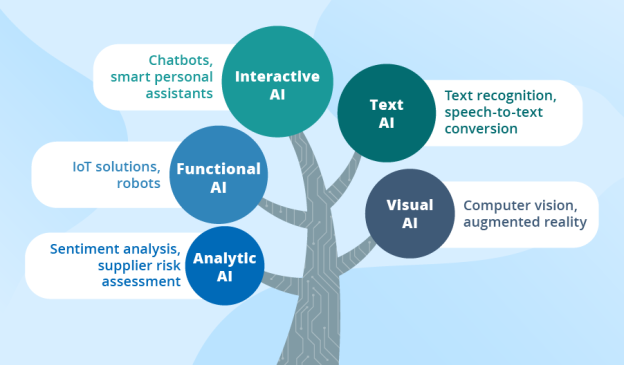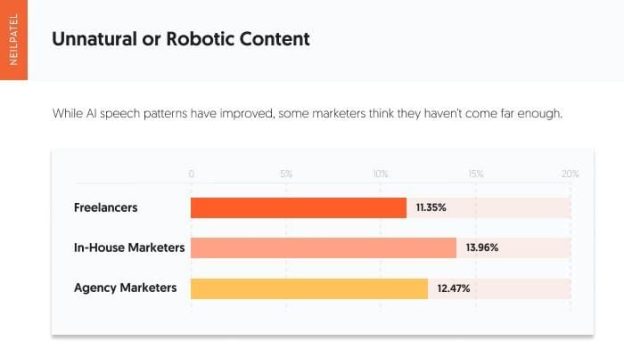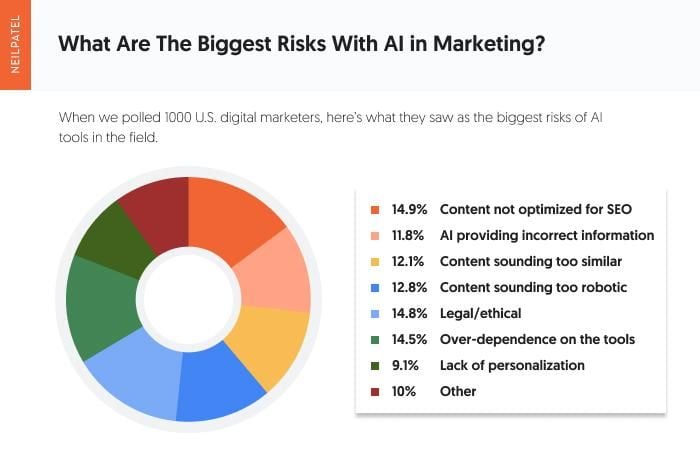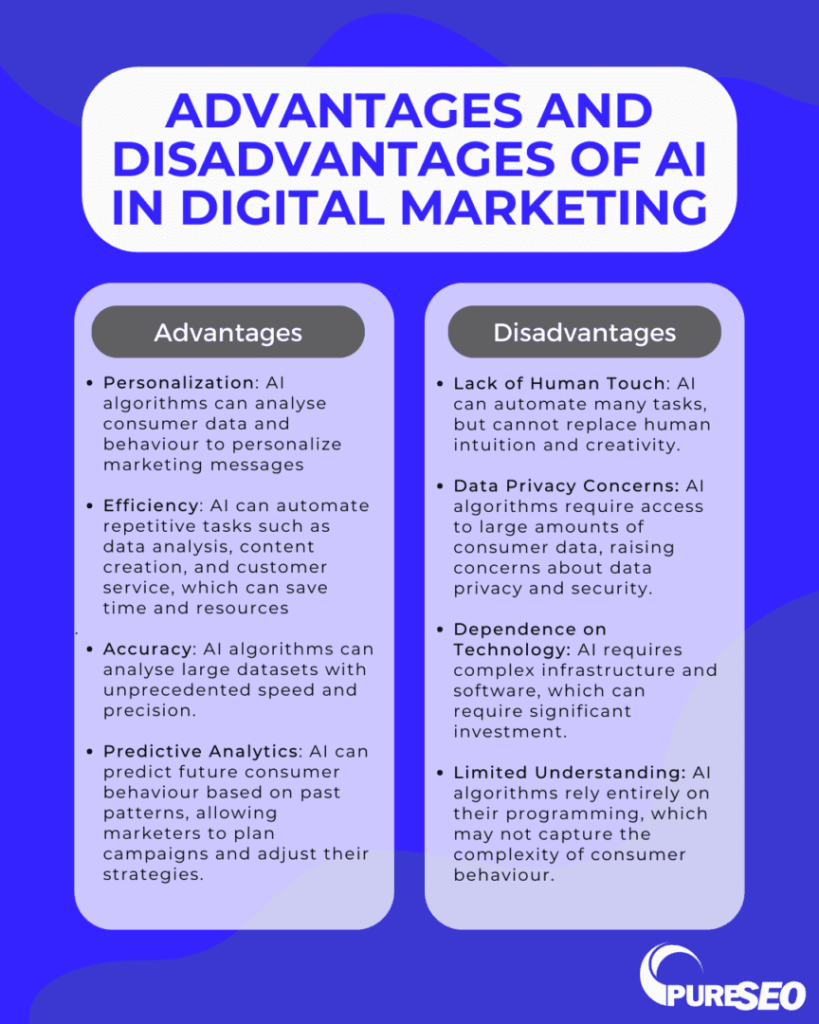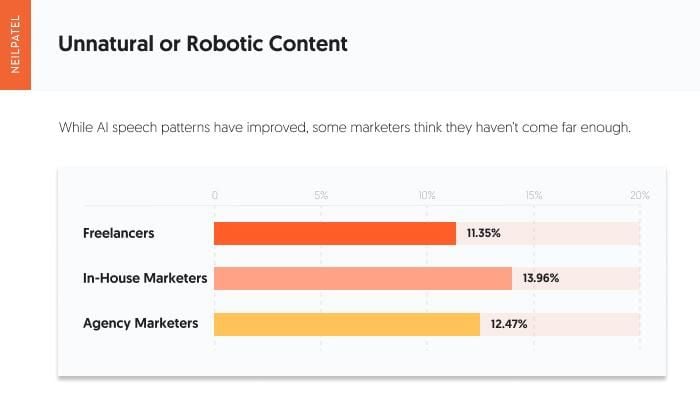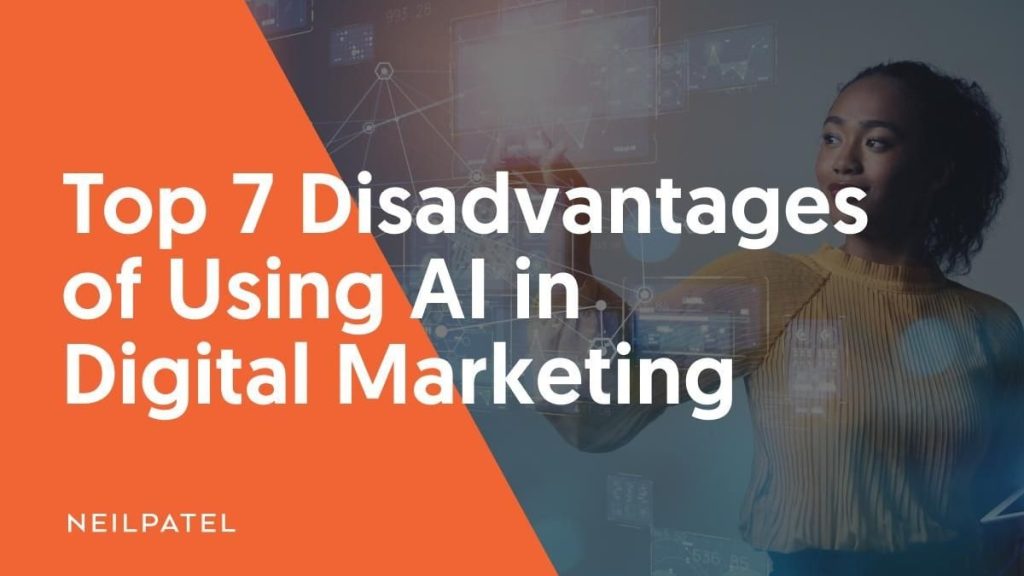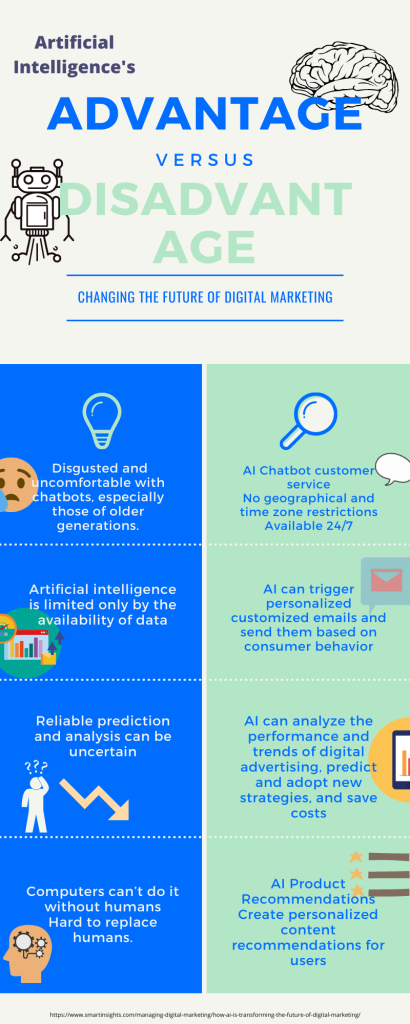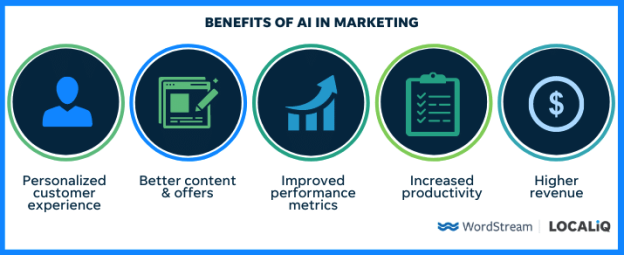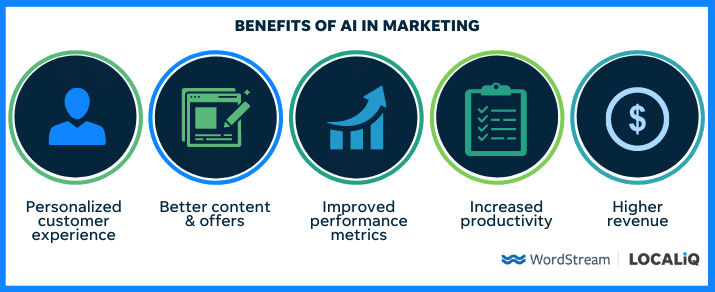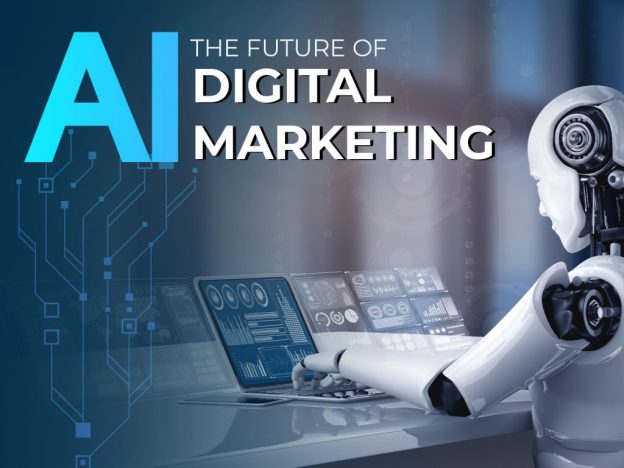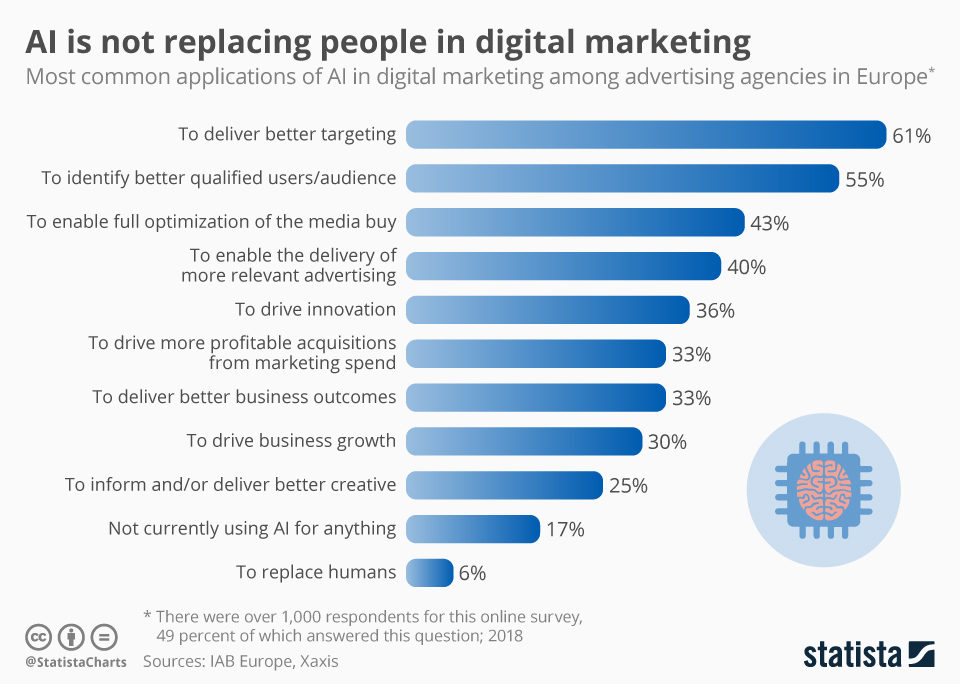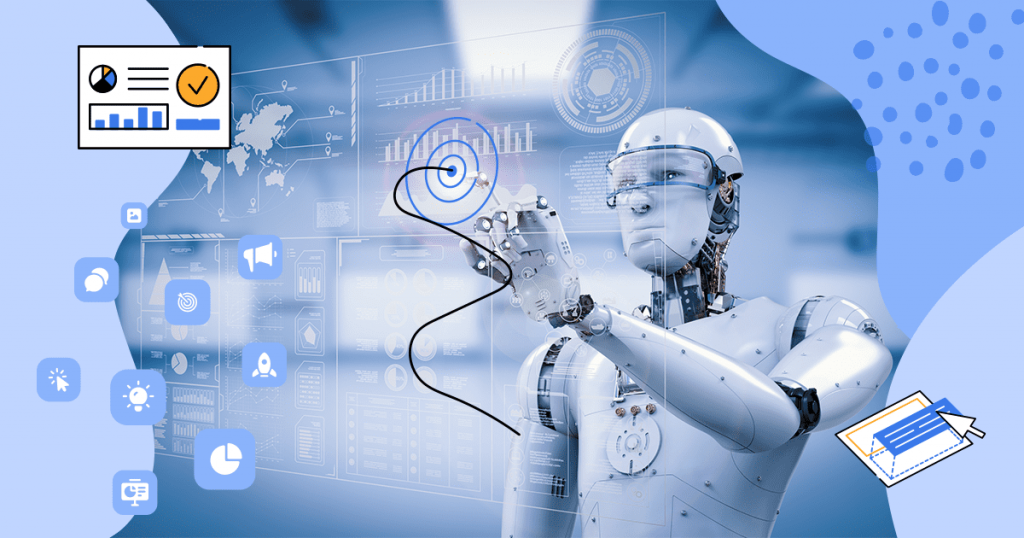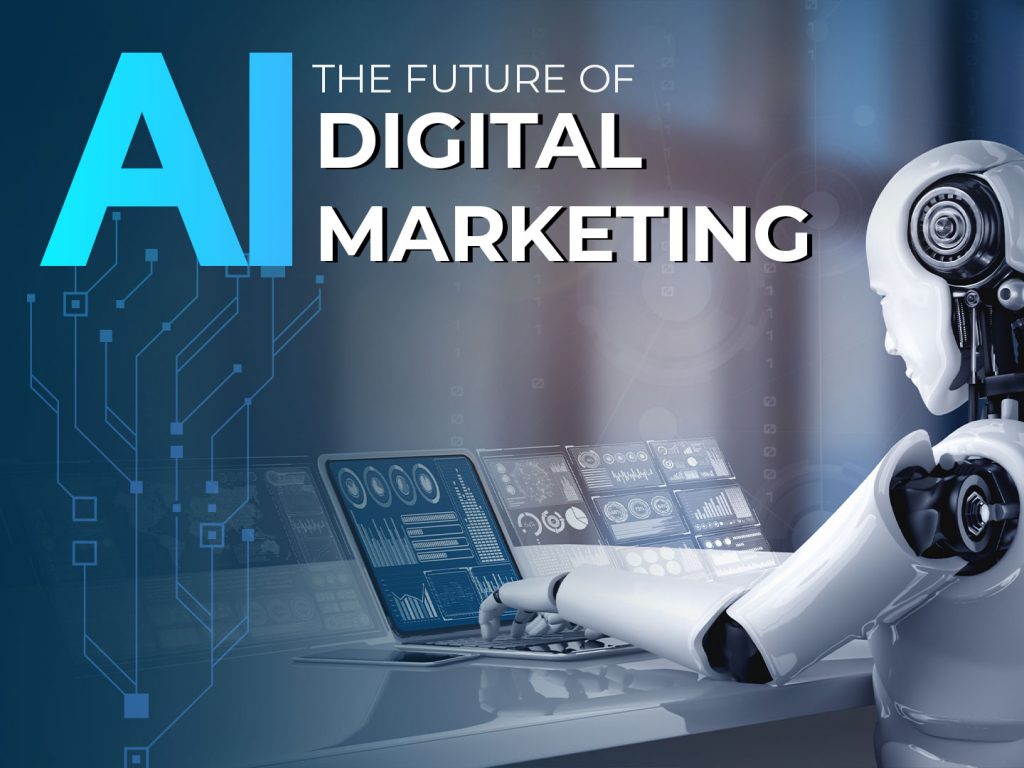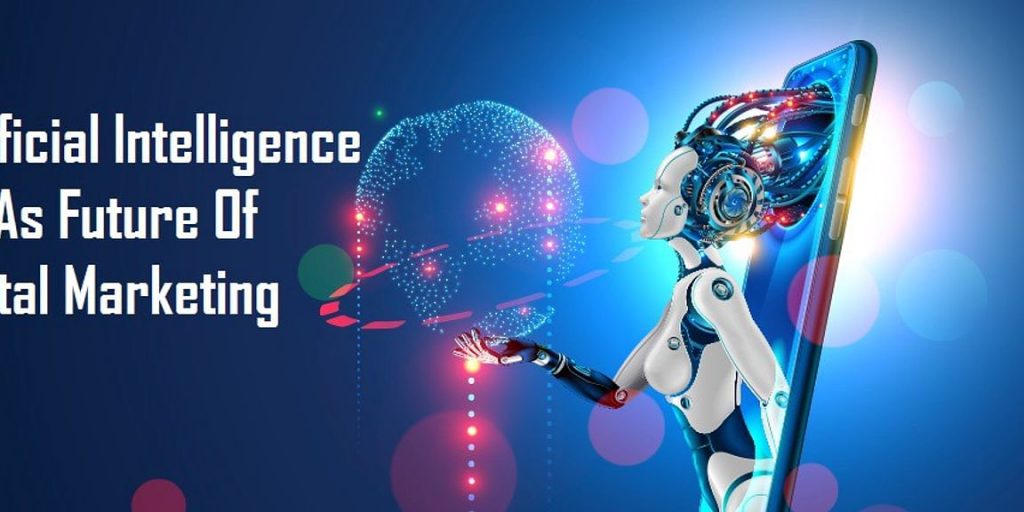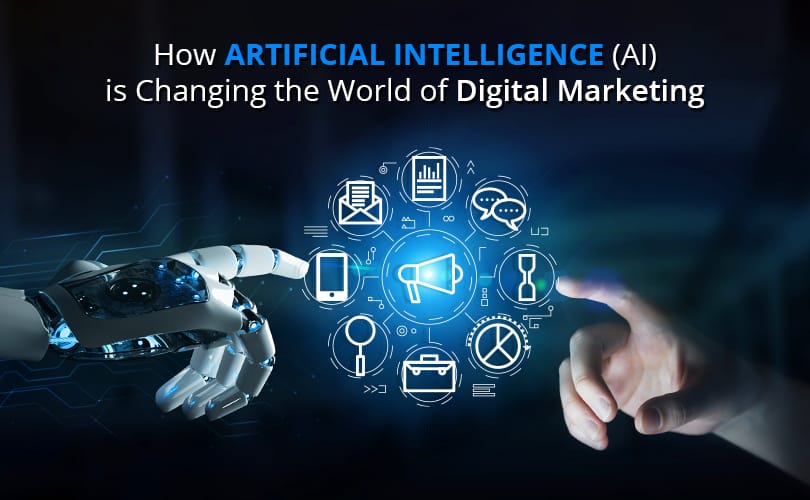So you’ve heard about AI in marketing, but you’re not quite sure what it actually means or entails. Well, fear not, because in this article, we’re going to break it down for you. We’ll explore the various types of AI in marketing, from chatbots to predictive analytics, and everything in between. By the end of this read, you’ll have a better understanding of how AI is transforming the marketing landscape and the different ways it can be applied to enhance customer experiences and drive business growth. Get ready to discover the exciting world of AI in marketing! Artificial Intelligence (AI) has revolutionized various industries, and marketing is no exception. With the advancements in AI technology, marketers now have access to powerful tools and techniques that can enhance their marketing strategies and drive better results. In this article, we will explore the different types of AI in marketing and how they can benefit businesses. So fasten your seatbelts and get ready for an exciting journey into the realm of AI in marketing.
1. Natural Language Processing (NLP)
1.1 Understanding and analyzing customer sentiments
Understanding customer sentiments is crucial for any marketing campaign. NLP, a branch of AI, enables marketers to analyze the emotions and opinions expressed by customers in texts, reviews, and social media posts. By using sentiment analysis algorithms, NLP can identify whether the customer sentiment is positive, negative, or neutral. This valuable insight helps marketers understand customer preferences, identify pain points, and tailor their marketing messages accordingly.
1.2 Automated content generation
Creating high-quality content can be a time-consuming task, but AI-powered NLP systems can automate this process. These systems can generate engaging articles, blog posts, and social media captions based on specific keywords and target audiences. With AI-generated content, marketers can save time, improve content consistency, and reach a wider audience more effectively.
1.3 Enhancing customer service with chatbots
Gone are the days when customers would wait endlessly to get a response from a customer service representative. AI-powered chatbots have revolutionized customer service by providing instant responses and personalized interactions. Chatbots use NLP techniques to understand and respond to customer queries, provide product recommendations, and even assist in purchasing decisions. By implementing chatbots, businesses can enhance their customer service experience, increase customer satisfaction, and free up human resources for more complex tasks.
2. Machine Learning (ML)
2.1 Personalized product recommendations
Machine Learning algorithms can analyze customer behavior, preferences, and purchase history to make personalized product recommendations. By understanding each customer’s unique needs and preferences, marketers can deliver targeted recommendations, cross-selling, and upselling opportunities. Personalized product recommendations not only improve customer experience but also increase customer loyalty and drive revenue growth.
2.2 Predictive customer behavior analysis
Machine Learning models can analyze vast amounts of customer data to identify patterns and predict future behavior. By leveraging historical data, marketers can identify trends, understand customer purchase patterns, and anticipate future needs. Predictive customer behavior analysis helps marketers make data-driven decisions, optimize marketing strategies, and maximize the return on investment.
2.3 Customer segmentation
Segmenting customers based on their characteristics, preferences, and behavior is essential for effective marketing campaigns. Machine Learning algorithms can automatically segment customers by analyzing various data points such as demographics, purchase history, and online interactions. By segmenting customers accurately, marketers can create targeted campaigns, tailor their messaging, and improve campaign effectiveness.
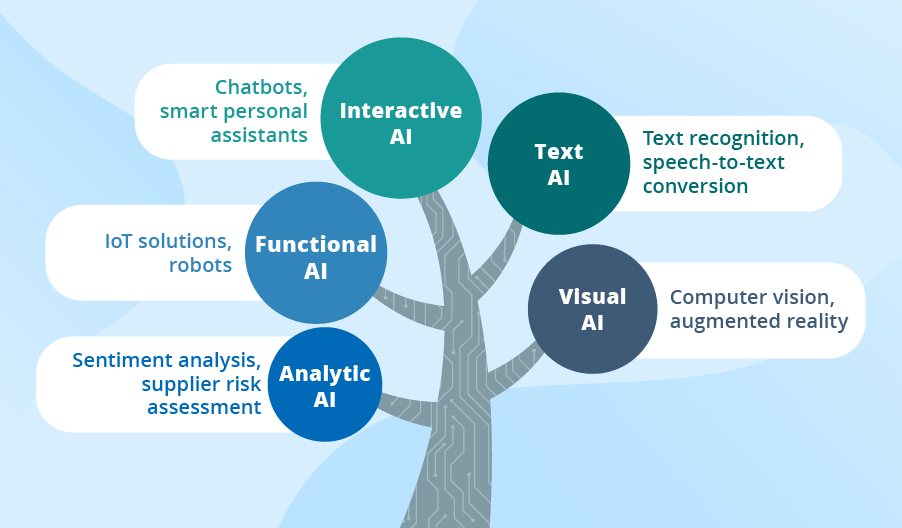
This image is property of www.scnsoft.com.
3. Deep Learning
3.1 Image and video recognition
Deep Learning, a subset of Machine Learning, enables the analysis and recognition of visual content such as images and videos. This technology allows marketers to automatically analyze and categorize visual content based on specific attributes, objects, or scenes. By understanding the visual context, marketers can create visually appealing content, optimize product placements, and deliver personalized experiences to their customers.
3.2 Voice-based marketing
With the rise of smart speakers and voice assistants, voice-based marketing has become an integral part of many businesses’ strategies. Deep Learning algorithms enable voice recognition and natural language understanding, allowing marketers to create voice-enabled experiences and interactions with their customers. By optimizing content for voice search and leveraging voice-based marketing techniques, businesses can increase brand visibility, reach new audiences, and provide seamless experiences for their customers.
3.3 Sentiment analysis in social media
Social media platforms have become a goldmine of customer feedback and sentiments. Deep Learning algorithms can analyze vast amounts of social media data, detect trends, and determine the sentiment behind customer interactions. By monitoring social media sentiment, marketers can identify potential issues, address customer concerns, and leverage positive sentiments for brand promotion. This valuable insight helps businesses improve their social media strategies, enhance brand reputation, and build stronger customer relationships.
4. Robotics Process Automation (RPA)
4.1 Automating repetitive marketing tasks
In the fast-paced world of marketing, repetitive tasks like data entry, report generation, and email automation can consume a significant amount of time. RPA uses AI-powered bots to automate these tasks, freeing up marketers to focus on more strategic and creative activities. By automating repetitive marketing tasks, businesses can improve efficiency, reduce errors, and reallocate resources to more critical areas of marketing.
4.2 Streamlining data management processes
Data management is a crucial aspect of successful marketing campaigns, but it can be tedious and time-consuming. RPA can streamline data management processes by automating data extraction, cleansing, and integration from various sources. By automating data management, marketers can ensure data accuracy, improve data-driven decision-making, and save valuable time for other marketing activities.
4.3 Improving campaign optimization
RPA can play a significant role in campaign optimization by automating A/B testing, performance tracking, and data analysis. By automating these processes, marketers can quickly gather insights, identify winning strategies, and make data-driven adjustments in real-time. This automation speeds up the campaign optimization process, improves marketing effectiveness, and helps businesses achieve better results.
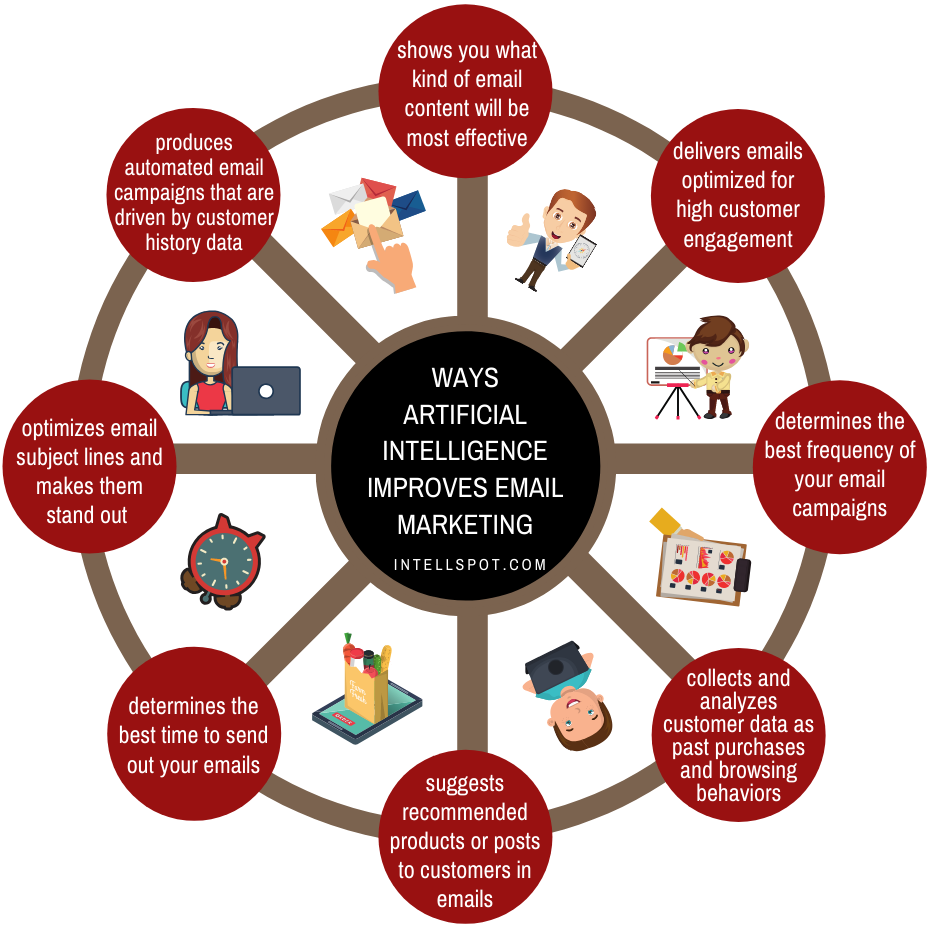
This image is property of intellspot.com.
5. Expert Systems
5.1 Providing personalized recommendations
Expert systems combine AI algorithms and domain expertise to provide personalized recommendations to customers. By analyzing customer data, purchase history, and preferences, expert systems can suggest relevant products, offers, and promotions. These personalized recommendations enhance the customer experience, increase customer satisfaction, and drive higher conversions.
5.2 Assisting in lead generation
Lead generation is a critical aspect of marketing, and expert systems can assist in this process. By analyzing customer data, website interactions, and online behavior, expert systems can identify warm leads and prioritize them for sales teams. This automation improves lead generation efficiency, increases sales productivity, and enables marketers to focus on building relationships with high-value leads.
5.3 Suggesting marketing strategies
Expert systems can analyze market data, competitor analysis, and historical campaign performance to suggest optimal marketing strategies. By leveraging AI algorithms, expert systems provide insights and recommendations on pricing, messaging, channel selection, and campaign timing. This guidance helps marketers make informed decisions, optimize marketing strategies, and achieve better results.
6. Computer Vision
6.1 Analyzing visual content
Computer Vision enables AI systems to analyze and interpret visual content such as images, videos, and infographics. By using computer vision algorithms, marketers can automatically analyze visual content to detect objects, recognize faces, extract text, and understand context. This capability opens up opportunities for creative visual marketing campaigns, targeted product placements, and more engaging customer experiences.
6.2 Enhancing visual search capabilities
Visual search is a rapidly growing trend in the e-commerce industry, and computer vision plays a crucial role in enabling this technology. By analyzing images or real-time feeds, computer vision algorithms can identify and match products, making it easier for customers to find the exact item they are looking for. Enhanced visual search capabilities provide a seamless shopping experience, increase customer satisfaction, and drive conversions.
6.3 Real-time object recognition
Real-time object recognition has numerous applications in marketing, such as in-store product placements, event marketing, and augmented reality experiences. With computer vision, marketers can identify objects in real-time, gather data on customer interactions, and create personalized marketing experiences based on customer preferences and behaviors. Real-time object recognition enhances engagement, improves customer interactions, and creates memorable brand experiences.
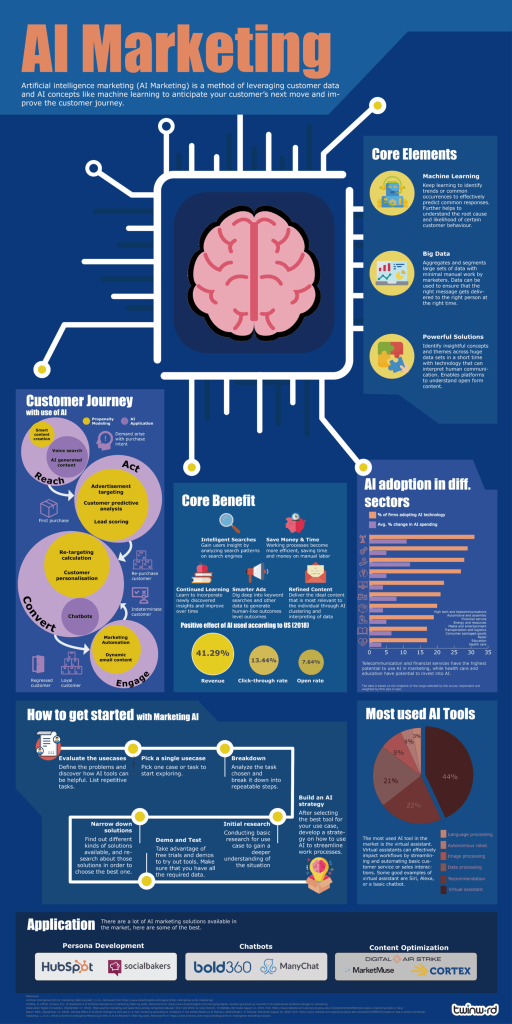
This image is property of www.twinword.com.
7. Augmented Reality (AR)
7.1 Interactive product visualization
Augmented Reality offers marketers endless possibilities for interactive and immersive product visualization. By overlaying digital elements onto the real world through mobile devices or smart glasses, marketers can showcase products in a virtual environment, allowing customers to try before they buy. Interactive product visualization enhances customer engagement, reduces purchase uncertainty, and increases conversions.
7.2 Personalized shopping experiences
AR can revolutionize the way customers shop by providing personalized and interactive experiences. For example, AR-enabled applications can suggest outfit combinations based on customer preferences, offer virtual try-ons, and provide real-time feedback. By offering personalized shopping experiences through AR, marketers can enhance customer satisfaction, build brand loyalty, and create a competitive edge.
7.3 Gamification in marketing
Gamification is an effective marketing strategy to boost customer engagement and brand loyalty. AR enables marketers to incorporate game-like elements into their campaigns, making them more interactive and entertaining. By leveraging AR-based gamification techniques, marketers can incentivize customer participation, increase brand awareness, and foster deeper connections with their audience.
8. Virtual Reality (VR)
8.1 Immersive brand experiences
Virtual Reality offers marketers the opportunity to create immersive brand experiences that transport customers to virtual environments. By creating VR experiences, marketers can showcase products, simulate real-life scenarios, and engage customers in a unique and memorable way. Immersive brand experiences through VR can leave a lasting impression, increase brand recall, and create brand advocates.
8.2 Virtual store walkthroughs
VR can revolutionize the way customers explore and shop online by providing virtual store walkthroughs. By creating virtual replicas of physical stores, marketers can offer customers an immersive and interactive shopping experience from the comfort of their homes. Virtual store walkthroughs enhance customer convenience, reduce barriers to purchase, and increase online sales.
8.3 Virtual product demonstrations
VR can take product demonstrations to a whole new level by allowing customers to virtually interact with products before making a purchase. By simulating real-life interactions, customers can experience the product’s features, functionality, and benefits in a virtual environment. Virtual product demonstrations enhance customer understanding, build trust, and drive conversions.
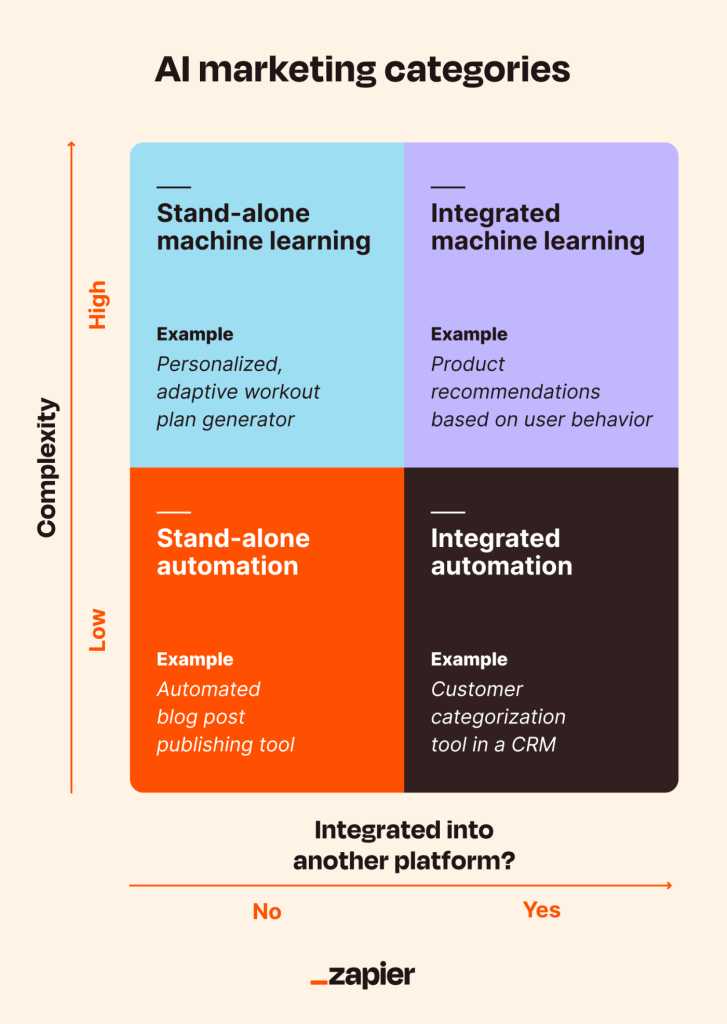
This image is property of images.ctfassets.net.
9. Sentiment Analysis
9.1 Analyzing customer feedback
Sentiment analysis is a valuable technique that helps marketers analyze customer feedback and opinions. By using AI algorithms, sentiment analysis can categorize customer feedback as positive, negative, or neutral, providing insights into customer satisfaction levels. Analyzing customer feedback through sentiment analysis helps marketers identify areas for improvement, resolve customer issues, and strengthen their brand reputation.
9.2 Social media sentiment monitoring
Social media has become a powerful platform for customer interactions, and sentiment analysis can help marketers monitor customer sentiments in real-time. By analyzing social media posts, comments, and reviews, marketers can gauge public opinion about their brand, products, or campaigns. Social media sentiment monitoring enables marketers to respond promptly to customer concerns, capitalize on positive sentiments, and protect their brand reputation.
9.3 Reputation management
Sentiment analysis plays a crucial role in reputation management. By monitoring and analyzing customer sentiments, marketers can proactively manage their brand’s online reputation. By addressing negative sentiments promptly, resolving customer issues, and leveraging positive sentiments, businesses can build a positive brand image, improve customer loyalty, and attract new customers.
10. Predictive Analytics
10.1 Forecasting customer behavior
Predictive Analytics uses AI algorithms to analyze historical customer data and predict future behavior. By understanding customer preferences, purchase patterns, and interactions, marketers can forecast future buying behavior and adjust their marketing strategies accordingly. Forecasting customer behavior helps marketers optimize marketing budgets, improve targeting, and maximize campaign effectiveness.
10.2 Optimizing marketing campaigns
Predictive Analytics can optimize marketing campaigns by analyzing data from multiple sources, identifying correlations, and predicting outcomes. By leveraging predictive analytics, marketers can identify the most effective marketing channels, optimize ad spend, and deliver personalized messages to the right audience at the right time. Optimizing marketing campaigns through predictive analytics improves marketing ROI, reduces wastage, and drives better results.
10.3 Pricing and demand prediction
Predictive Analytics can also help businesses predict pricing trends and demand patterns. By analyzing market conditions, historical data, and competitor pricing strategies, marketers can optimize pricing decisions and forecasts demand fluctuations. Accurate pricing and demand predictions enable businesses to stay competitive, optimize revenue generation, and improve overall profitability.
In conclusion, AI has opened up a world of possibilities for marketers, revolutionizing the way they understand their customers, create engaging experiences, and optimize marketing strategies. From Natural Language Processing for understanding customer sentiments to Robotics Process Automation for automating repetitive tasks, the different types of AI in marketing offer a wide range of benefits. By embracing AI and leveraging its capabilities, businesses can stay ahead of the competition, deliver personalized experiences, and achieve marketing success in the digital era. So, get ready to embrace the power of AI and take your marketing to new heights.
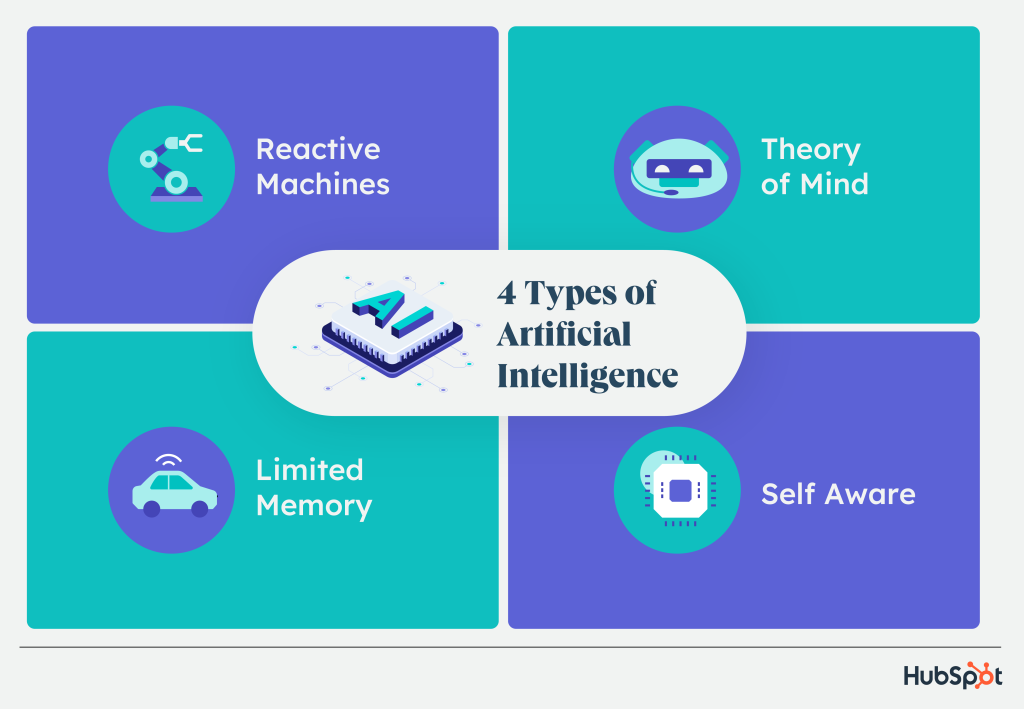
This image is property of blog.hubspot.com.
